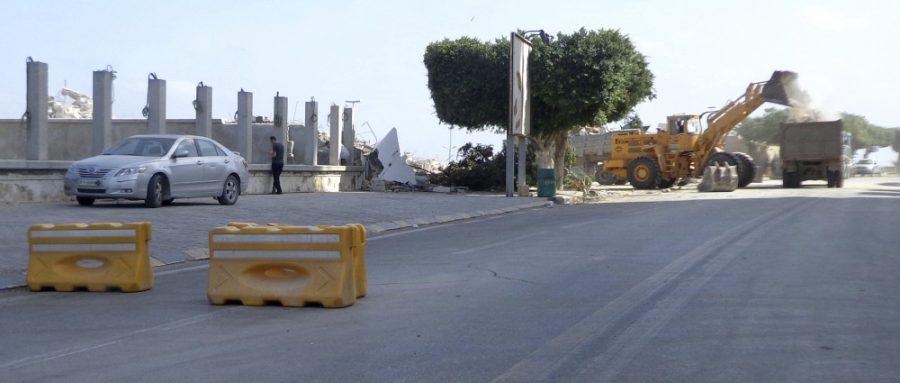TRIPOLI, Libya — Members of the Libyan government and its military have been implicated in the destruction by Islamists over the weekend of several mosques affiliated with the Sufi branch of Islam, an indication that the government that replaced Moammar Gadhafi after a months-long NATO bombing campaign is having difficulty controlling its extremist elements.
On Sunday, the ruling General National Congress summoned Interior Minister Fawzi Abdel Al, Defense Minister Osama Jweili and several other military and intelligence officers for questioning after the Sufi shrines were attacked Friday and Saturday. General National Congress speaker Muhammed Magarief slammed the desecrations as “disgraceful acts.”
Magarief went as far as to suggest that there may have been official collusion in the attacks, saying that those responsible “are unfortunately aligned with some in the Supreme Security Committee (SCC) and ex-revolutionaries.” The security committee is responsible for organizing Libya’s armed forces.
Abdel Al subsequently handed in his resignation while the positions of the other officials appear tenuous, especially Jweili, whose appointment is widely thought to have been part of a deal with a powerful militia group from the city of Zintan, 90 miles south of Tripoli. Jweili was formerly the head of Zintan’s military committee.
The Zintan brigade captured Saif al-Islam Gadhafi, the second son and former heir apparent of Moammar Gadhafi, in November and agreed only last week to allow him to be tried next month in Zintan in exchange for political favors, one of them reportedly being the appointment of Jweili.
Sufis believe in a mystical brand of Islam that some conservative Muslims label heretical. The attacks on the shrines began early Friday, when ultraconservative Islamists used bombs and a bulldozer to level the tomb of a 15th-century Sufi scholar, Abdel Salam al-Asmar, in the town of Zlitan, 100 miles east of Tripoli. The radicals also destroyed thousands of historical books when they burned a library in a nearby mosque to the ground.
The tomb’s destruction followed fierce clashes between two of Zlitan’s heavily armed tribes that killed several people. Three journalists who covered the assault for a local TV station were arrested as security forces tried to impose a media blackout.
As dawn broke Saturday, Islamists emboldened by the success of the Zlitan attack struck the Sidi Shaab Mosque, which housed the shrine of the Sufi mystic of the same name, opposite the Mahari Radisson Blu hotel and overlooking Tripoli harbor.
Members of the security forces stood guard as militants, some of them members of the Supreme Security Committee, used heavy equipment to smash the shrine and then a bulldozer to raze the mosque. Police at the scene failed to intervene but enforced the blocking of the road that leads to the mosque and kept journalists from filming or taking pictures.
A moderate imam who tried to reason with the extremists was beaten and taken away, and a group of Libyans protesting the destruction was violently confronted. Reports allege that Salafist clerics in Saudi Arabia have instructed Libya’s Salafists to destroy religious shrines, which they consider objects of idolatry.









